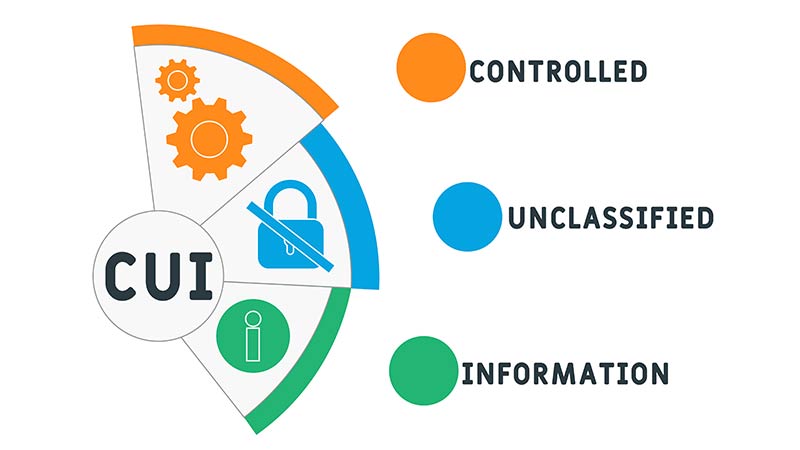Federal AI Policy Update: Executive Orders Reshape Government AI Approach
The White House Office of Management and Budget (OMB) has issued significant policy changes to accelerate federal adoption of artificial intelligence, delivering on President Trump's Executive Order to remove barriers to American leadership in AI.
Released in April 2025, these new policies were developed in coordination with the Office of Science and Technology Policy (OSTP) and fundamentally shift the government's approach to AI from risk-averse to “forward-leaning” and “pro-innovation,” with significant implications for managed service providers (MSPs) whose clients include federal agencies or contractors serving the federal government.
What are the new AI policies?
The federal government has established a new framework for AI use and procurement through a series of executive orders and implementing memoranda:
- Executive Order 13960 — “Promoting the Use of Trustworthy Artificial Intelligence in the Federal Government” (December 2020) – Set the original framework for trustworthy AI in government
- Executive Order 14179 — “Removing Barriers to American Leadership in Artificial Intelligence” (January 2025) – Mandated a shift to pro-innovation approaches and directed OMB to revise previous guidance
- OMB Memorandum M-25-21 — “Accelerating Federal Use of AI through Innovation, Governance, and Public Trust” (April 3, 2025) – Provides implementation guidance that rescinds and replaces previous memorandum M-24-10
- OMB Memorandum M-25-22 — “Driving Efficient Acquisition of Artificial Intelligence in Government” (April 3, 2025) — Provides acquisition guidance that rescinds and replaces previous memorandum M-24-18
The new memoranda represent a comprehensive rewrite of federal AI policy, focusing on American AI innovation, efficiency, and removing bureaucratic barriers while maintaining appropriate safeguards.
Why this matters for MSPs
These policy changes present significant opportunities for MSPs serving clients in the federal ecosystem:
Key impacts for MSPs:
- Expanded market opportunities: Agencies are directed to “lean forward on adopting effective, mission-enabling AI to benefit the American people.” This signals increased investment in AI solutions and services that MSPs can help implement and manage for their clients.
- Streamlined acquisition processes: The policies create “clear and specific requirements that make it easy for vendors to offer state-of-the-art AI capabilities.” The focus on removing bureaucratic bottlenecks means faster procurement, which affects MSPs supporting clients in the federal space.
- Federal contractor support needs: Federal contractors and suppliers will need AI compliance, governance, and procurement support as they adapt to these new requirements. MSPs can offer AI readiness consulting, help clients prepare impact assessments, and align with new data and IP standards.
- Role transformations: Chief AI Officers (CAIOs) are being established at agencies to “promote AI innovation, adoption, and governance” rather than focusing on bureaucratic oversight. MSPs can position themselves as technical advisors in this transformation.
- Risk management simplification: The approach introduces a single “high-impact AI” category with specific governance requirements rather than multiple risk tiers. MSPs will need to understand these requirements when supporting clients with AI implementations.
- Regulatory trickle-down effect: These policies will likely influence standards beyond direct federal contractors, affecting SMBs and regulated clients in the private sector, especially those doing government-adjacent work. Organizations in regulated environments (healthcare, finance, government) will seek partners who understand these new compliance frameworks.
Notable changes in AI acquisition:
- IP rights protection: Agency contracts will include “terms related to IP rights and lawful use of government data” to prevent vendor lock-in and protect agency data ownership.
- Performance-based acquisition: Agencies are encouraged to use “performance-based techniques” rather than prescriptive requirements, focusing on outcomes rather than specific technical approaches.
- Governance integration: AI accountability will “mirror the existing process for using government IT” instead of creating additional approval layers.
- Resource sharing: GSA will develop “a web-based repository of tools and resources to enable AI procurement” to help agencies share best practices.
Implementation timeline
Contractors and agencies working with AI in the federal space should be aware of the following deadlines:
- 60 days: Agencies must designate Chief AI Officers
- 180 days: New contracts subject to the requirements (from issuance of M-25-22)
- 180 days: CFO Act agencies must develop public AI strategies
- 270 days: Agencies must update internal AI policies
- 365 days: Implementation of minimum risk practices for high-impact AI use cases
MSP Compliance & Opportunity Checklist
MSPs should seize the opportunity to:
Governance & Risk Readiness
- Help clients identify “high-impact AI” use cases.
- Provide AI risk assessments and document mitigation steps.
- Support clients in appointing or acting as a fractional CAIO.
- Develop or review AI strategies for clients in government supply chains.
Procurement & Contract Support
- Review or draft AI-related contract clauses (IP, data usage, model transparency).
- Ensure clients avoid vendor lock-in by recommending open formats and APIs.
- Help agencies or contractors track AI performance post-deployment.
AI & Data Infrastructure
- Assess readiness of data governance and traceability frameworks.
- Advise on AI-enabling infrastructure (e.g., compute, monitoring tools).
- Offer tools to monitor AI model effectiveness and bias over time.
Workforce & Training
- Provide AI literacy training for technical and non-technical staff.
- Deliver templates or workshops for AI governance boards.
- Position your team as a resource for building an AI-ready culture.
Want to read more?
- Press release: White House Releases New Policies on Federal Agency AI and Procurement
- The White House: AI Memo Fact Sheet
- The White House: Removing Barriers to American Leadership in Artificial Intelligence
Need Help? Compliance Scorecard is the answer
With our MSP-tailored GRC platform, you can turn compliance into a revenue-generating service. Sign up for a live demo today.
Contact Us:
"*" indicates required fields



